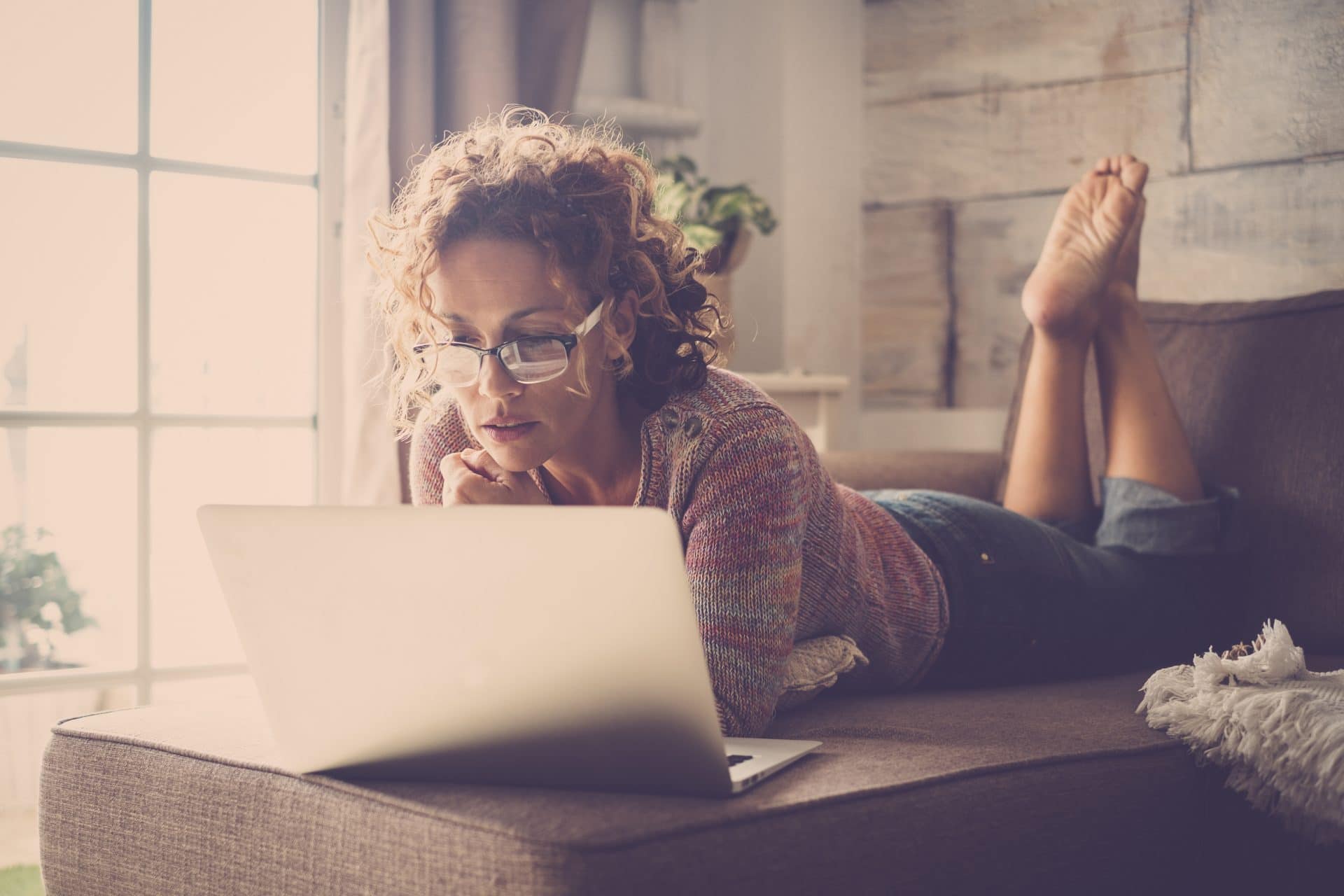What damage is all this screen time doing?
Health
New research from a leading opticians reveals some worry effects on the public...though there are some remedies to manage our current reliance on the digital gits.
Lockdown isn’t going away any time soon – hey, but at least we’re all connected, right? Connected to the information super-highway, the digital dream…yknow with Zoom calls, spreadsheets, Instagram, Twitter, Whatsapp, Netflix, Slack, the news feed, Facebook, notifications chiming and flashing all day, all night, demanding our attention at the expense of our children, when will it ever end?!
Yep, it’s impressive that technology is so good, and also shit that technology is so good. That it has a significant impact on our mental and physical health is beyond a doubt – you only have to look at the rising mental health and obesity stats over the last 10 years – and now we’re more reliant on it than ever.
Data from Bayfields Opticians and Audiologists shows the UK public has spent 120 per cent more time using online video platforms in the last six months compared to before lockdown, equating to three hours and 12 minutes each week per person. Their survey of 2,000 people found that, because of this increased exposure to digital screen, over half of home workers have experienced symptoms such as insomnia, headaches, eye strain, anxiety or low moods.
There are some things that can be done about this, to at least manage the current situation. Here, Charlotte Cook Optometrist and Clinical Development Coach at Bayfields Opticians , shares her tips on how you look after your mental and physical health when working from home:
1. Don’t be connected for the sake of it
“As part of our research, we wanted to understand how productive video calls actually are. What we found was that employees spend an average of 47 minutes getting physically and mentally prepared before using tools like Zoom, Skype, and Teams and once the meeting is over, it takes around 18 minutes to back into work mode. In fact, one in ten people say they don’t feel productive for at least half an hour after a video call. This amounts to 56 unproductive working hours per employee since lockdown begun, which is a lot of wasted hours.
“Instead of allowing video calls to dominate your work schedule, try and introduce new ways of achieving the same outcomes. Could a phone call be just as useful? Often, we find inspiration outdoors, while exercising or in the shower, so give yourself a change of scenery away from the screen to generate ideas which you can feedback to your team without needing to join a lengthy video call.”
2. Get a health check
“If you’re suffering from symptoms such as eye strain and headache, there could be a few different reasons why. Yes, these are side effects of using too much technology, but it could also be due to poor posture, hormonal changes or even the amount of sleep you’re getting at night.
“We advise getting a general health check, starting with a trip to your opticians. They might suggest something as simple as taking regular breaks from your screen, may discover your prescription has changed or could recommend using specialist lenses if you wear glasses. For example, Zeiss Smartlife lenses – which are available from Bayfields! – are specially designed and proven the help relieve the symptoms of connected lifestyles. During a trial with Aston University, the lenses were found to improve all day visual comfort for users by 78 per cent compared to typical spectacles lenses. This small change to your usual spectacles could make a huge difference if technology is crucial to your new working life.”
3. Practice wellness away from the screen
“The lockdown saw swathes of new, online initiatives launched as a way to replicate the normal parts of our life that existed before the pandemic. Online personal trainers, virtual book clubs and birthday get togethers on Zoom have replaced physical interaction and have been really useful to achieve a level of normality while we remain indoors for the majority of the day.
“However, they just add to the amount of time we’re spending online each day and will exacerbate any physical or mental side effects of using technology too much.
“Start to identify ways in which you can fully disconnect and save the strain on your eyes. Use your lunch hour as an opportunity to walk outside; spend the evening learning how to make your favourite restaurant dish from your own kitchen and ensure you have an hour away from your screen before going to sleep at night. If being online is vital for working purposes, try and cut it down during the other parts of your day to improve your general wellbeing.”
4. Don’t lose out on human interaction
“If you’re working from home, and think you might be for several more months, set yourself some boundaries and make sure human interaction away from work is a key part of your day. Decide a time of the day when you will finish work and stop using the computer for professional purposes. Spend time unwinding by doing an off-screen activity, and then use your evening to reconnect with a friend or family member – ideally, in physical form, implementing social distancing techniques where necessary.
“If you’re unable to see someone in person and technology is your only solution, it’s not the end of the world; video platforms have lots of positives about them and have arguably been key to people surviving the darkest days of lockdown. Whichever way you need to reconnect, do it in a way that suits you, but ensure you spend as much time offline as you do online. Otherwise, the long term effects of working from home will go way beyond not being able to go for after work drinks.”
To find your nearest Bayfields store and access ZEISS SmartLife lenses, visit https://www.
Trending

Join The Book of Man
Sign up to our daily newsletters to join the frontline of the revolution in masculinity.


















